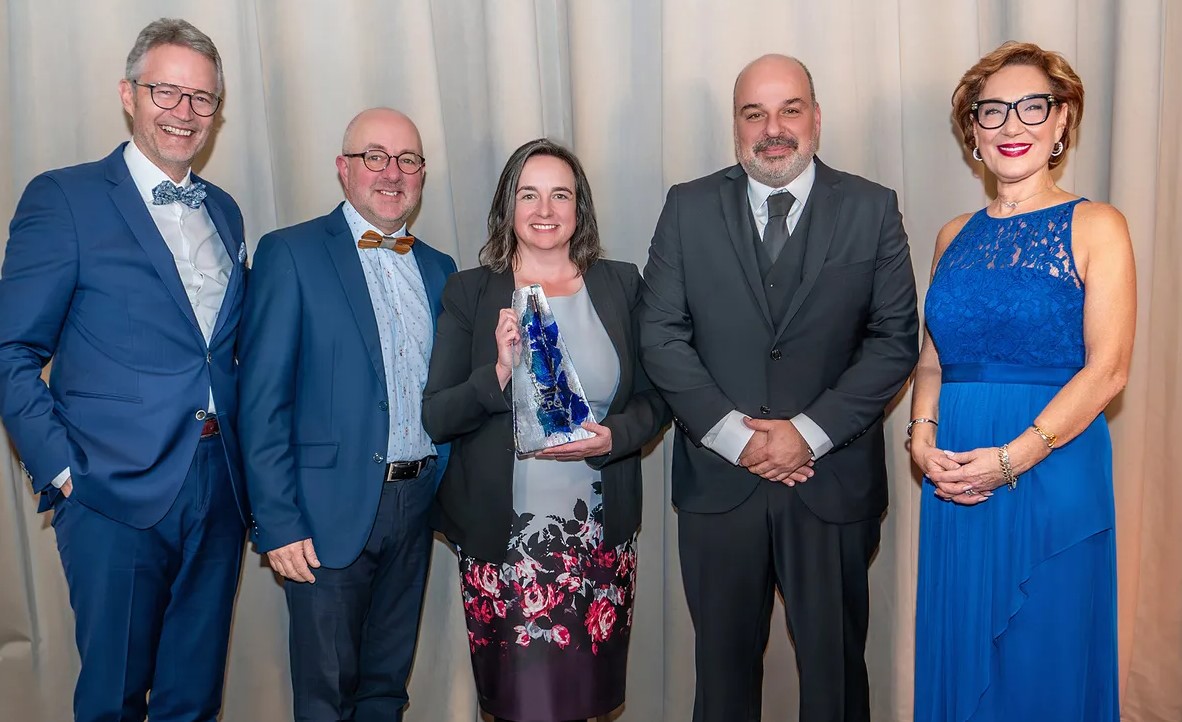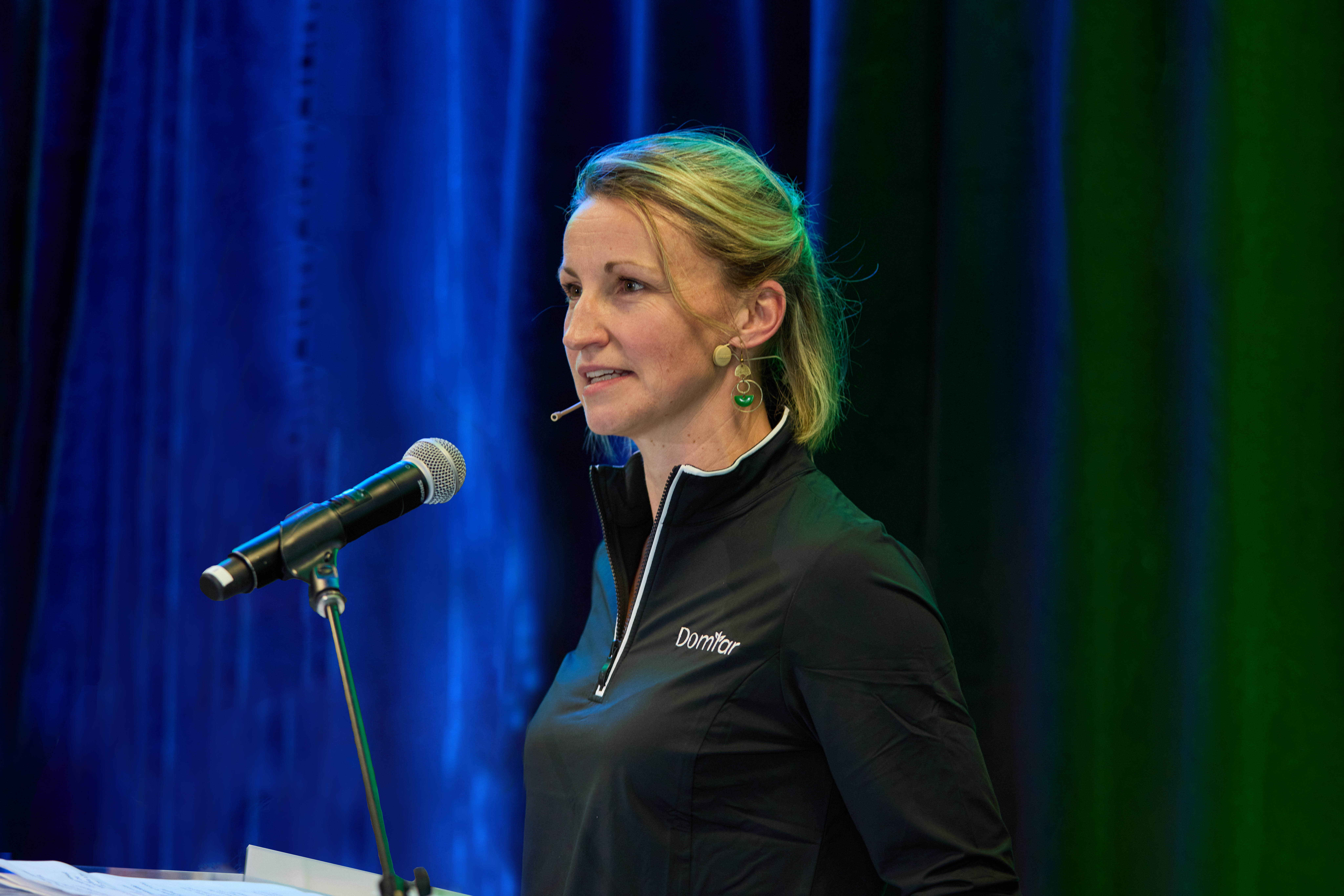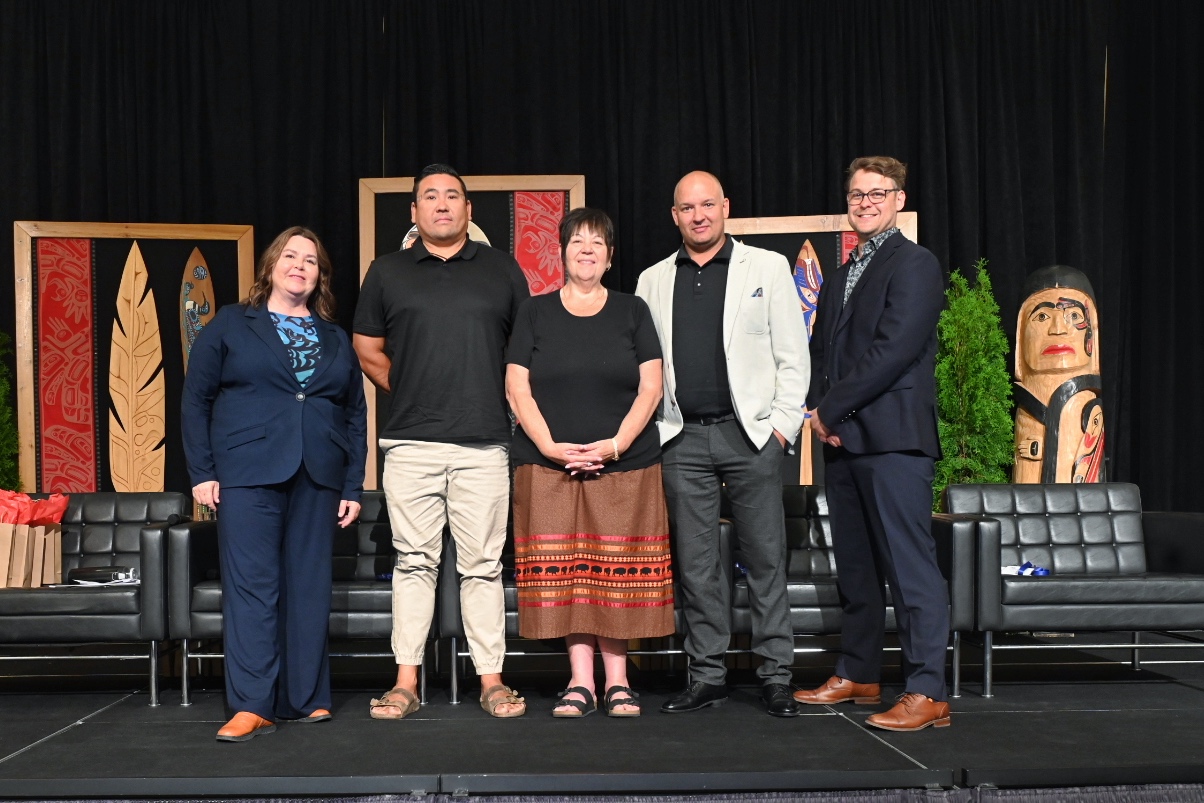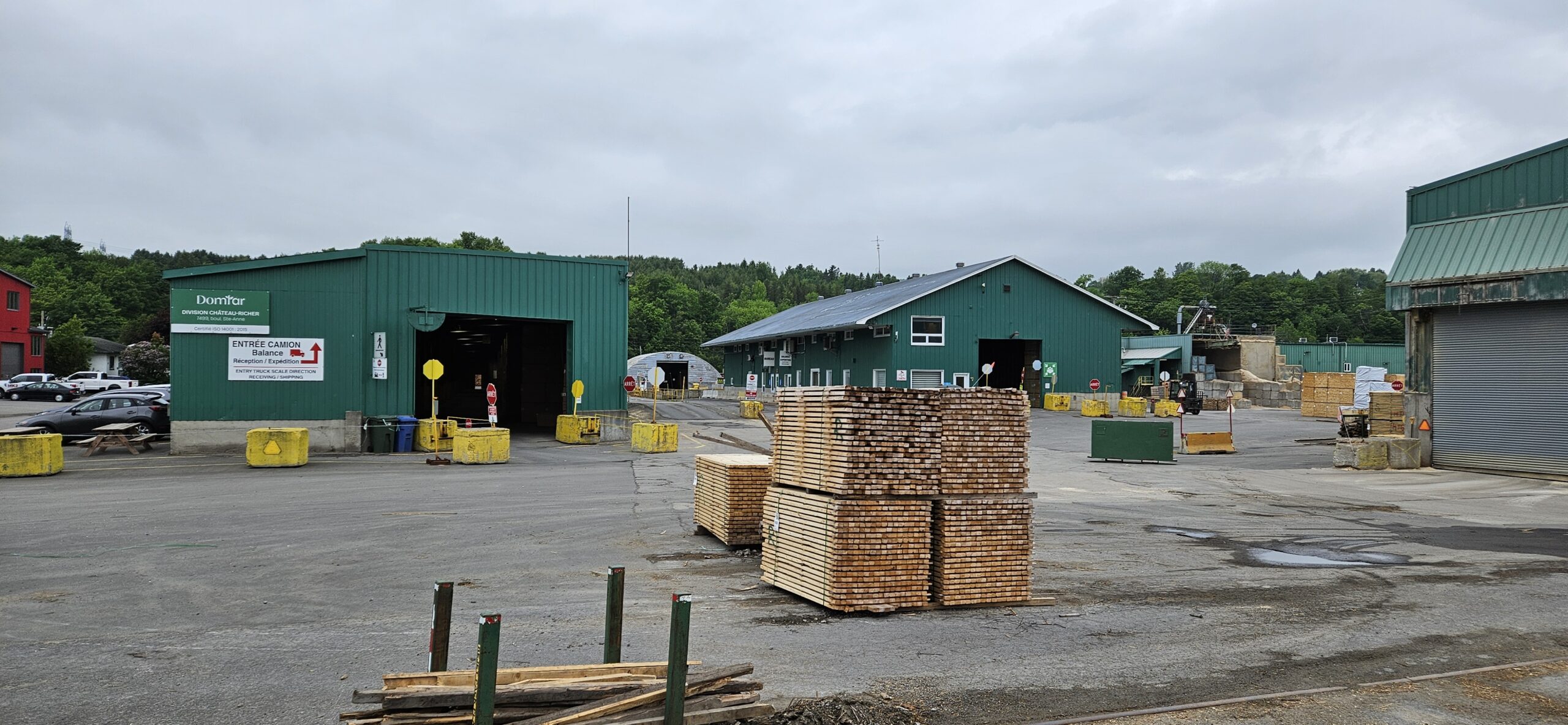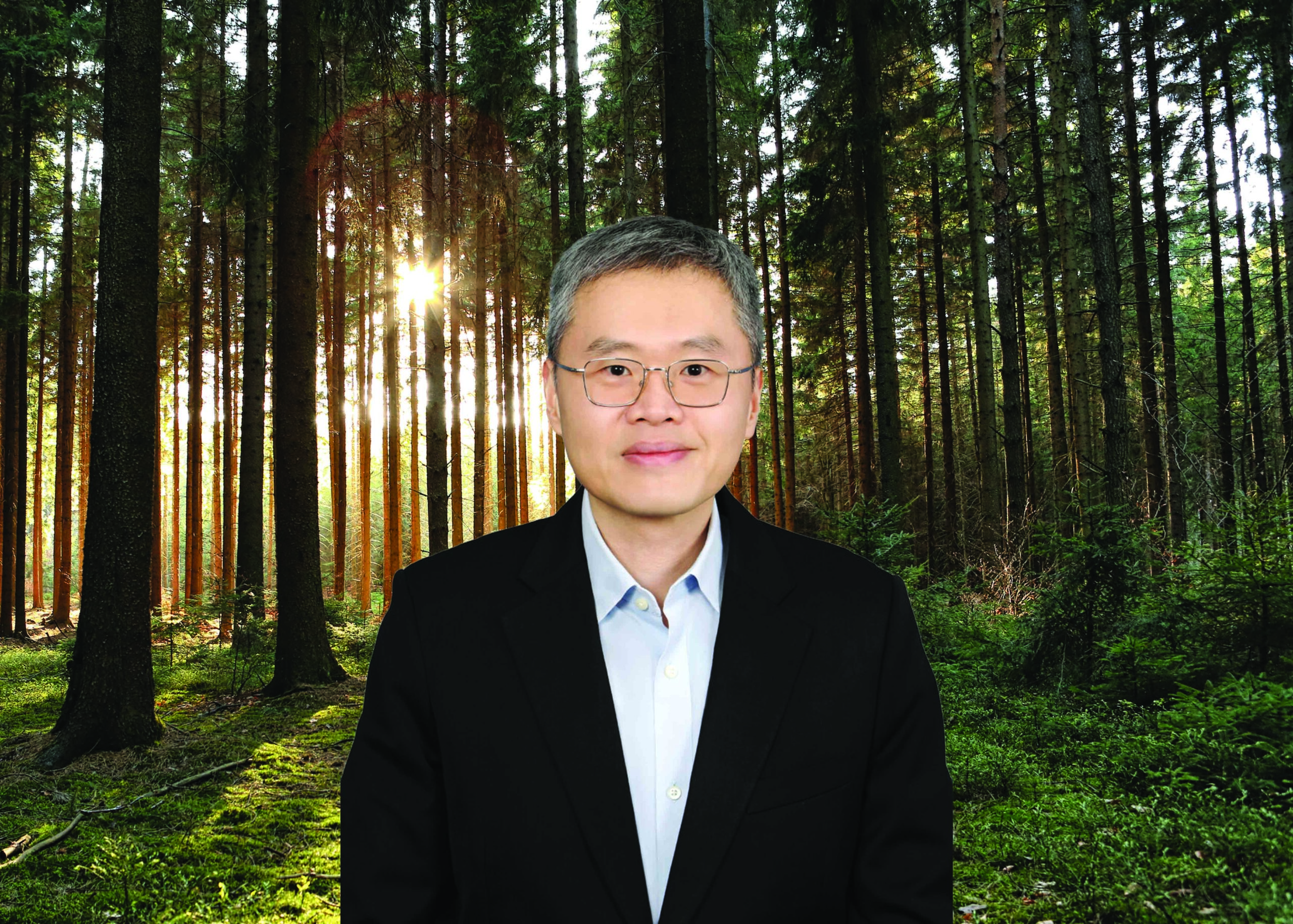At Domtar, our colleagues bring a wide range of skills, experiences and perspectives to their work, and that’s what makes us a stronger, more resilient company. One such colleague is Karen Roach, general manager at our Grenada, Mississippi, mill and chair of the Domtar Diversity, Equity and Inclusion (DE&I) Committee. Roach’s journey to mill manager spans 26 years in the forest products industry at locations in the United States and Canada. We sat down with Roach to learn more about her career and the lessons she’s learned along the way as a woman working in manufacturing.
You’ve had an interesting career in the forest products industry, and now you’re serving as mill manager at our Grenada, Mississippi, newsprint mill. Can you share a bit of your journey in the forest products industry?
I knew I wanted to study engineering, but as the youngest of four children, the funds weren’t necessarily there for me to get the education I needed without taking out a lot of student loans. My mother heard about a paper science program through a local community college in Syracuse, New York, that was funded by companies in the forest products industry. That scholarship program partnered with The State University of New York (SUNY), and it was essentially a chemical engineering degree, which I completed in 1998.
From there, I started as an entry-level engineer with Georgia-Pacific, where I gained experience in several different areas at one of their mills. I was there for nine years, during which the mill was acquired by Domtar. While working at this facility, we completed an SAP ERP implementation, which is how I learned that I love logistics, supply chain management and production planning. I eventually took a corporate position with Domtar in Montreal. From there I had an opportunity to work for Abitibi-Bowater, which eventually was renamed Resolute Forest Products.
After some time in Fort Mill, South Carolina, and again in Montreal as director of logistics, I became vice president of supply chain for Resolute’s pulp and paper division. I was looking for my next opportunity within the company when I had a chance to serve as an interim mill manager in Hagerstown, Maryland. Then in 2022, I became mill manager at our Grenada, Mississippi, mill, which is now part of the Domtar network. Our mill’s 169 employees produce 233,000 tons of newsprint each year.
How have your experiences shaped the type of mill manager you are today?
When I first started out, I was lucky to have a female department manager who ended up becoming a mill manager while I was there. She was a great role model for me as a woman in a leadership role in engineering and in manufacturing, just to see where I could go with my career. Then I worked with someone in Montreal who was very strategic in their work. I learned that you can’t just look at what’s happening now. You have to have a vision for where you want to go in the future because that dictates the choices you make today.
Another role model taught me that you have to create connections with your employees so that they aren’t intimidated by you but instead are comfortable coming to you when they need help or when things aren’t going right, because there’s always something not going right. Those connections help you communicate your long-term vision so that everyone is working toward the same goals.
Those lessons learned in my formative years have helped me become who I am today.
In addition to serving as mill manager, you’re the chair of Domtar’s Diversity, Equity and Inclusion (DE&I) Committee, which is made up of members from across our organization. Why is DE&I important to you?
Regardless of who we are or where we come from, we should be judged on what we do. I’ve been interested in DE&I because of my own journey, starting with the scholarship program. There have been opportunities along the way that have enabled me to get to where I am today. I feel it’s important to show others that there are those opportunities, especially if they don’t have the means to take a traditional path. I think about what might have happened if I never heard about the paper science program and the scholarship. Working in DE&I shines a light on programs like that for young people who are or may become interested in pursuing a career in the industry.
In addition, my work in supply chain management put me into contact with a lot of different people, and over the years I heard their stories of challenges they were facing. How can we create a workplace that is welcoming and inclusive for everyone so that they can truly feel like part of the team? I also think about accessibility for people with disabilities. I was diagnosed with multiple sclerosis in the early 2000s, and while my condition is currently very well managed, it does make me more aware of the needs that our colleagues with disabilities have in the workplace.
As a result of all of that, I set DE&I as one of my career goals and joined the DE&I team at Resolute, and today I’m chair of the new Domtar DE&I committee.
Our individual actions are important, but for change to really happen, we need a groundswell of support. It has to happen at the leadership level as well as on the shop floor. That’s why our new Vision, Mission and Values statement is so meaningful. It encapsulates what we’re working toward, which is to create a culture of trust and respect and to amplify diverse voices.
Your team recently earned an award for its DE&I efforts in Québec. Tell us more about the work that’s been accomplished there.
We received the 2024 PROSPÈRE Diversity and Inclusion Employer Award from the Conseil du patronat du Québec (CPQ) for our foreign workers program. More than 300 workers joined our company from other countries through this program, and we made it a point to ensure they felt welcome and had the ability to find housing, overcome language differences and become a part of the community.
We recognize that making a big change like moving to another country for a better life can be extremely difficult, but we want all of our employees to know that they can experience support and encouragement on the job.



